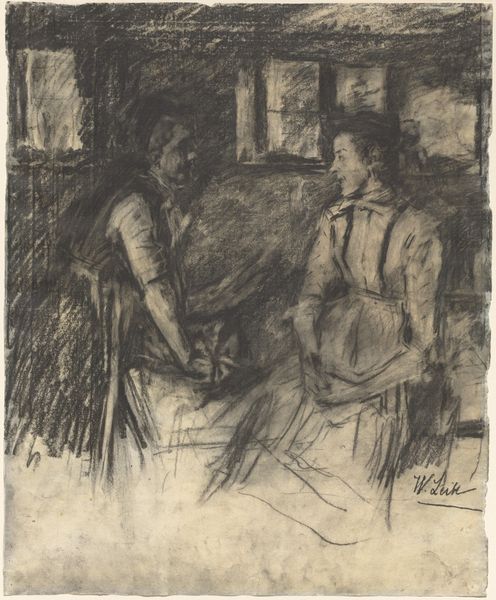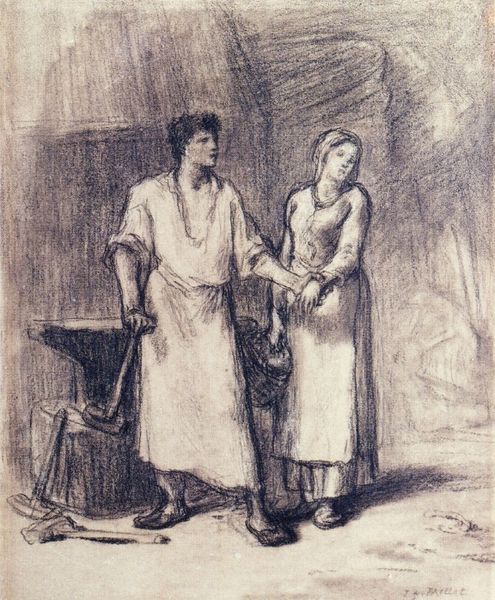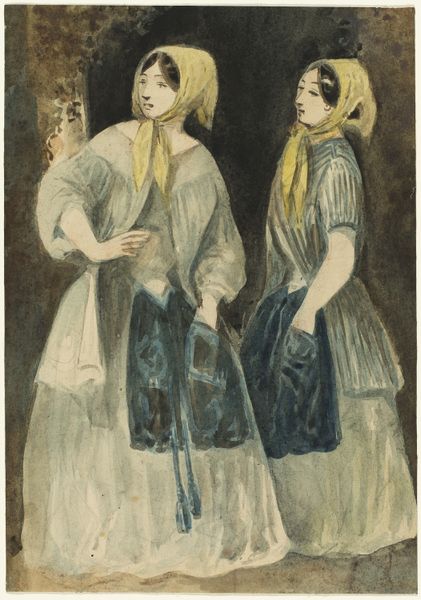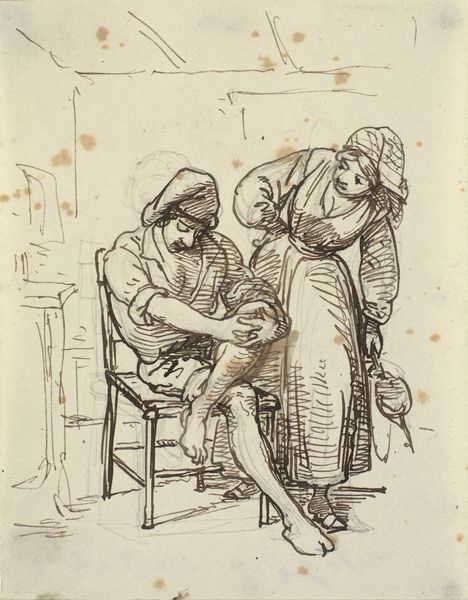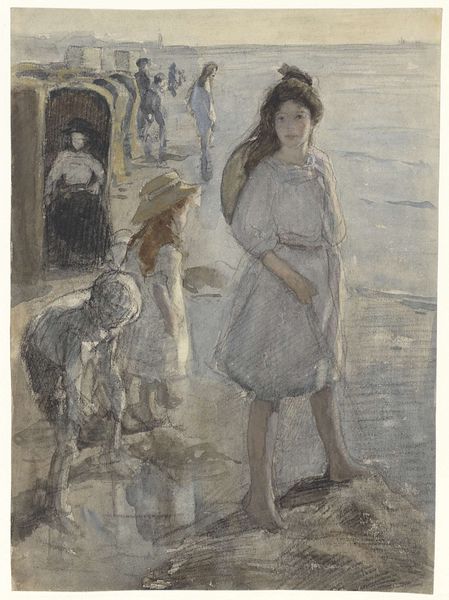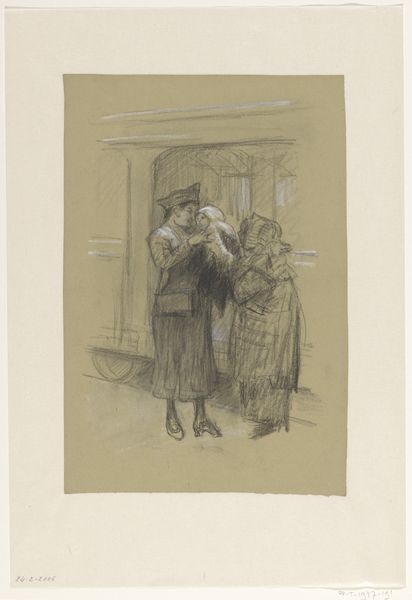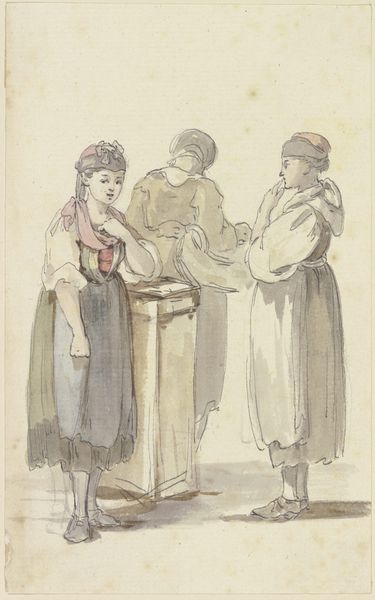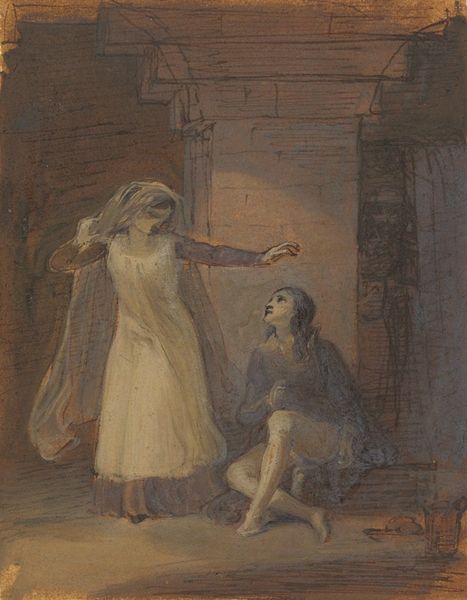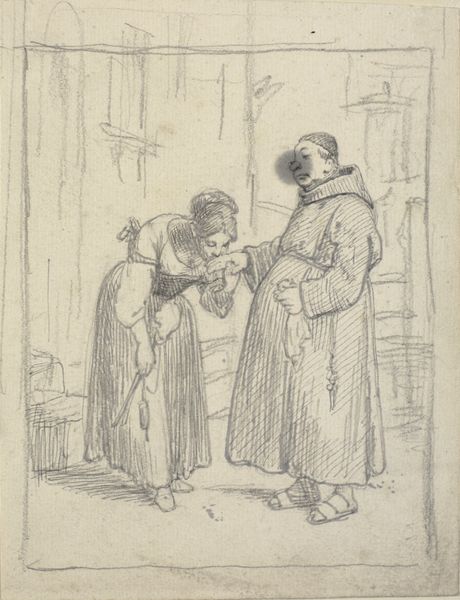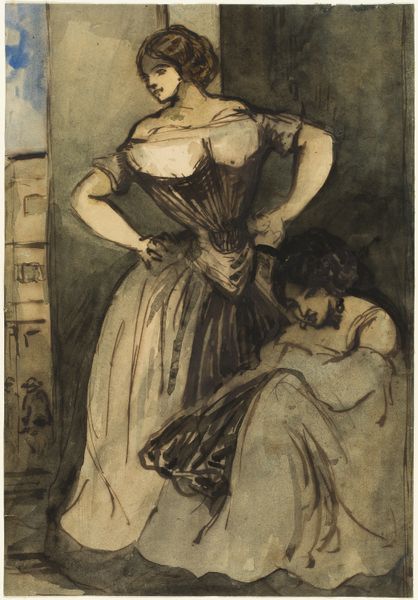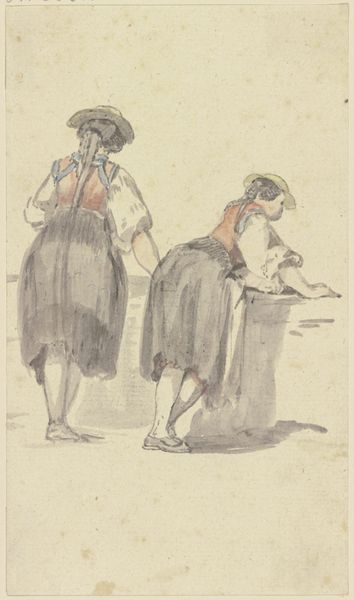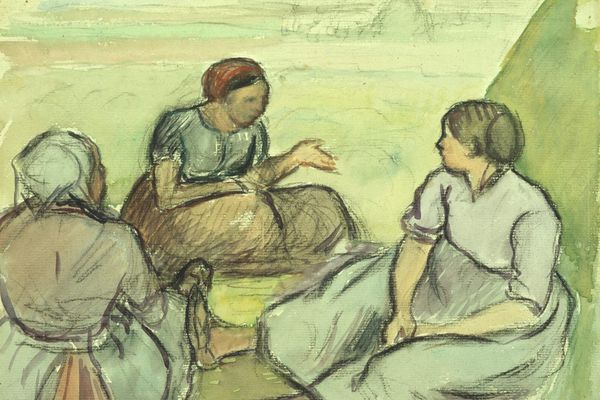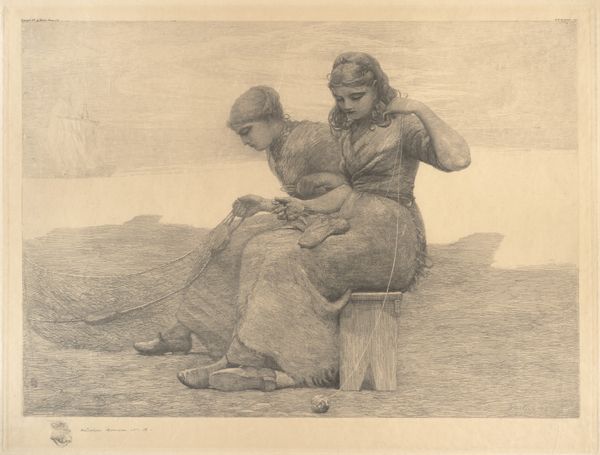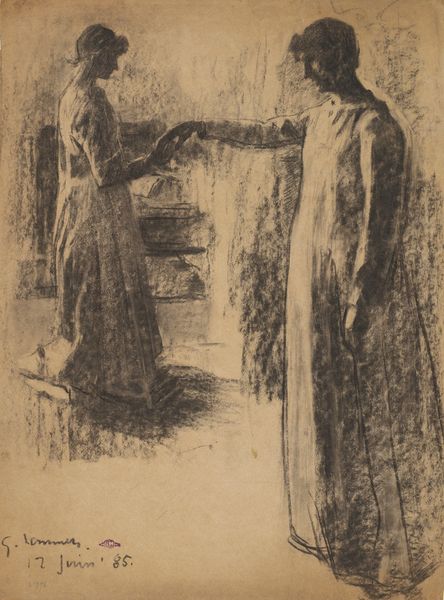
Copyright: Public domain
Curator: What a poignant piece! Théophile Alexandre Steinlen's "Laundresses," created in 1897, captures a slice of working-class life through the combined use of charcoal and pastel. The composition is striking. Editor: Indeed. There's an immediate sense of weariness emanating from those figures. They appear burdened, not just by the laundry, but also by life's daily grind. You can almost feel the weight in their posture. Curator: Steinlen had a knack for highlighting the plight of the common person. It’s important to recall the socio-political environment in France at the time. Mass urbanization created challenging conditions for the working class, with little public investment. The laundry industry was backbreaking and exploited workers like these women. This work and others in this period functioned almost as visual advocacy. Editor: The laundry bag serves as such an overt symbol of burden, not merely domestic, but emotional as well. The subtle shading, particularly around their faces, adds a layer of solemnity. Do you think it is too much to argue that those drooping building façades echo the two women's weary stances? Curator: Not at all, it adds to Steinlen's critical perspective on modern Parisian society. We need to remember Steinlen's ties to Parisian cabarets of the period such as Le Chat Noir. Even there, artists reflected through performances, satirical plays and shadow puppets the challenges facing the underprivileged of French society. Editor: I find it moving how the artist captured this shared hardship. They’re side-by-side, connected by their labor. One stares off, seemingly lost in thought; the other looks down towards the ground in front of them, as though already worn down before beginning the daily walk. It’s like they're bonded through this never-ending cycle. Curator: That connection highlights one way the social and economic pressures manifest. Many women of this time shared working spaces and domestic spaces; the ties could be really powerful. Yet there was also a deep alienation caused by the demands of modernity and factory schedules. Editor: Reflecting on this drawing now, the laundresses' stoicism remains memorable. It is a symbol of perseverance under duress that still resonates across history and cultural boundaries. Curator: It reminds us how art captures historical narratives of social injustice to this day. By drawing attention to them, Steinlen challenges his viewers.
Comments
No comments
Be the first to comment and join the conversation on the ultimate creative platform.
